Skill Development

Can playing multiple sports help in skill development ?
Participation in multiple sports can enhance overall athleticism and skill development by improving physical attributes, reducing injury risk, developing transferable skills, and promoting mental toughness. It also offers social benefits such as expanded networks and increased opportunities for exposure. While specialization has its advantages, playing multiple sports can help athletes become well-rounded competitors.

How can team sports help in individual skill development ?
Team sports contribute significantly to individual skill development by improving communication skills, enhancing leadership abilities, increasing self-confidence, bettering time management, improving social skills, promoting physical fitness and coordination, providing opportunities to learn from mistakes, and fostering adaptability.
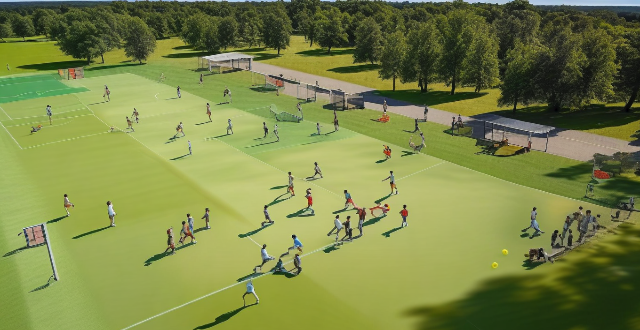
What is the influence of sports on leadership skills development among adolescents ?
This article discusses the influence of sports on leadership skills development among adolescents. It highlights the importance of leadership skills and how sports can contribute to their development through communication, problem-solving, decision-making, teamwork, and self-motivation. The article concludes that sports have a significant impact on the development of essential leadership qualities that are important for success in various aspects of life.

How do individual versus team sports differ in their impact on child development ?
Individual sports foster self-reliance and technical mastery, while team sports emphasize social skills and emotional intelligence. Both have unique benefits for child development, and the choice should consider the child's personality and desired skill development. A combination of both might provide the most well-rounded experience.

How important is rest and recovery in skill enhancement ?
The text discusses the importance of rest and recovery in the process of skill enhancement. It highlights the cognitive and physical benefits of taking breaks, such as improved mental clarity, memory consolidation, muscle recovery, and injury prevention. The practical implications include avoiding burnout, enhancing performance, and strategies for incorporating rest into practice schedules. Overall, the text emphasizes that rest is a crucial component of long-term skill development and should be given equal consideration alongside deliberate practice and training regimens.

Can nutrition affect an athlete's skill level ?
Nutrition is vital for athletes' overall well-being and performance, including skill enhancement, recovery, and injury prevention. It affects cognitive function, physical performance, and recovery, ultimately influencing an athlete's skill level. A balanced diet with proper nutrients can help athletes reach their full potential and succeed in their sports.
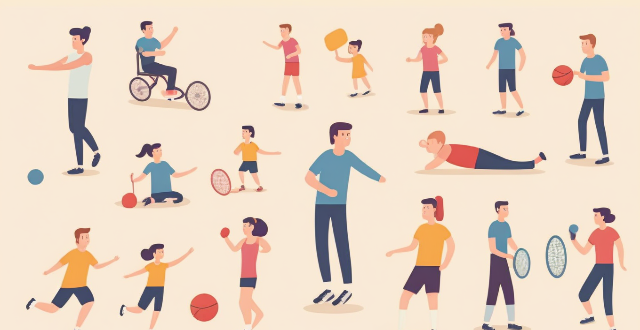
How do competitive sports influence social development and teamwork skills ?
Competitive sports play a significant role in shaping individuals' social development and enhancing their teamwork skills. This essay explores the various ways in which competitive sports influence these aspects of personal growth, including increased social interaction, building confidence and self-esteem, learning to deal with success and failure, collaboration, communication skills, leadership development, and responsibility and accountability. These skills are not only valuable in sports but also transferable to various aspects of life, making competitive sports an essential component of personal growth and development.
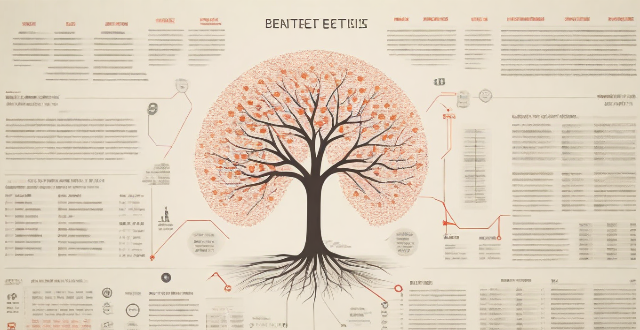
What are the benefits of extracurricular activities for teenage development ?
This article discusses the benefits of extracurricular activities for teenage development, including improved social skills, personal growth and self-discovery, academic success, physical health and well-being, and lifelong skills and habits.

How do I choose a tennis training camp that fits my skill level ?
Choosing a tennis training camp that fits your skill level can significantly improve your game. Here are some tips on how to select the right camp: 1. Assess your current skill level by considering your experience, strengths and weaknesses, and fitness level. 2. Research different camps that offer programs specifically designed for your skill level using online directories, social media groups, and reviews from previous attendees. 3. Check the coaches' qualifications and experience, including their credentials, coaching philosophy, and track record of working with players at your skill level. 4. Consider the quality of the camp's facilities and amenities, such as well-maintained courts, access to equipment, and onsite amenities like locker rooms and dining areas. 5. Evaluate the camp's reputation and success rate by reading reviews, asking for referrals, and contacting the camp directly to learn more about their success stories.

How does social harmony impact economic development and stability ?
Social harmony is essential for economic development and stability, as it increases productivity, reduces conflict, improves governance, attracts foreign investment, and enhances social cohesion.

Is speed reading a natural ability or a skill that can be learned ?
Speed reading is a topic of interest for many individuals who wish to improve their reading efficiency and comprehension. The question arises whether speed reading is a natural ability that some people possess, or if it is a skill that can be learned and developed through practice and training. While there may be some individuals who possess a natural ability for speed reading, it is generally accepted that speed reading is a skill that can be learned and improved upon through practice and training. By employing specific techniques and strategies, anyone can enhance their reading speed and comprehension, ultimately increasing their productivity and knowledge acquisition.

How do team sports contribute to social skills development in teenagers ?
Team sports offer a plethora of benefits for teenagers, one of the most significant being the development of social skills. Here's how: 1. **Communication**: Team sports require effective communication to achieve success, such as calling plays, using body language, and non-verbal signals. 2. **Cooperation**: Playing on a team requires cooperation among players to work together towards a common goal, like passing the ball or working together on defense. 3. **Leadership**: Leadership is necessary for success in team sports, whether it's the captain leading warm-ups or a player stepping up in a critical moment. 4. **Respect**: Respect is crucial in team sports, as players must respect their coaches, teammates, opponents, and officials to succeed both on and off the field.

What are the latest trends in sports research and development ?
The latest trends in sports research and development include wearable technology for real-time monitoring, data analytics for performance evaluation, genetic testing for personalized training, VR and AR for skill development, recovery technologies like cryotherapy, and nutritional advances. These advancements focus on enhancing athletic performance while emphasizing athlete health and well-being.

How does sport specialization at a young age impact overall development ?
Sport specialization at a young age can have both positive and negative impacts on a child's overall development. While it allows for skill development, confidence building, and potential opportunities for college scholarships and professional careers, it can also lead to overuse injuries, burnout, limited social interaction, physical development issues, psychological pressure, and narrow life experiences. Parents and coaches are advised to encourage variety in activities, monitor training intensity, promote balance, listen to children's feelings, and seek professional advice to ensure well-rounded development.

How can technology help us achieve the Sustainable Development Goals ?
Technology can significantly contribute to achieving the Sustainable Development Goals (SDGs) by offering innovative solutions to pressing global challenges. Here's a breakdown of how tech can aid in reaching these goals: 1. **No Poverty**: Digital financial services and e-commerce platforms can reduce poverty by providing access to financial services and global markets, respectively. 2. **Zero Hunger**: Precision agriculture and food delivery apps can increase food production and reduce waste, thereby combating hunger. 3. **Good Health and Well-Being**: Telemedicine and wearable devices can improve healthcare access and personal health monitoring. 4. **Quality Education**: Online learning platforms and augmented reality can provide equal educational opportunities and enhance learning experiences. 5. **Gender Equality**: Women's empowerment apps and online entrepreneurial platforms can promote gender equality and economic empowerment. 6. **Decent Work and Economic Growth**: Remote work technologies and skill development platforms can create job opportunities and enhance employability. 7. **Industry, Innovation, and Infrastructure**: Smart manufacturing and renewable energy technologies can drive industrial efficiency and sustainable infrastructure. 8. **Reduced Inequalities**: Data analytics and social media can help identify and address inequality, promoting social change. By harnessing technology, we can move closer to a more sustainable, prosperous, and equitable future for all.

How do extracurricular activities contribute to the development of student leaders ?
**The Role of Extracurricular Activities in Nurturing Student Leaders** **Skill Development:** Extracurricular activities offer a platform for students to acquire and refine various skills, such as communication, teamwork, time management, and problem-solving. **Confidence Building:** Involvement in extracurricular activities often leads to increased self-assurance through taking initiative and overcoming challenges. **Interpersonal Abilities:** Engaging in extracurricular activities fosters key interpersonal abilities like networking, empathy, emotional intelligence, and influence. **Real-World Experience:** Extracurricular activities simulate real-world experiences where leadership is crucial, teaching organizational skills and adaptability. **Responsibility and Commitment:** Participation teaches responsibility and commitment through accountability and dedication to practice or training. **Conclusion:** Extracurricular activities serve as a laboratory for students to experiment with leadership styles, make mistakes, learn from them, and grow into well-rounded individuals ready to take on future challenges.
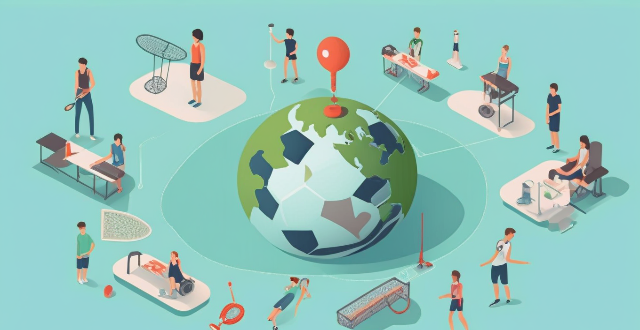
How does the globalization of sports impact player recruitment and talent development ?
The globalization of sports has led to increased competition in player recruitment, diversification of talent pools, and the adoption of advanced training methods. This includes exposure to international markets, cultural exchange, geographic broadening, demographic variety, technological integration, scientific approaches, language and communication adaptation, and education and life skills development.
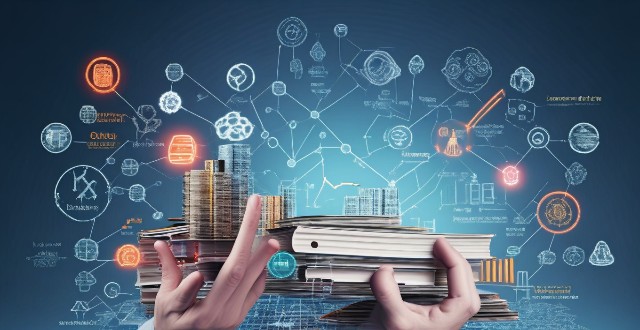
How does lifelong learning impact career development ?
Lifelong learning is a continuous process of acquiring new knowledge and skills that can significantly impact career development. It enhances skills, adaptability, creativity, personal growth, networking opportunities, and career longevity. By engaging in lifelong learning, individuals can stay relevant in their professions, adapt to changing job requirements, and increase their chances of career success.

How does team sports contribute to personal growth and development ?
Team sports contribute significantly to personal growth and development by helping individuals develop various skills, qualities, and values essential for success in all aspects of life. These include communication skills, leadership abilities, teamwork and collaboration, discipline and responsibility, goal setting and achievement, emotional intelligence, and time management. Participating in team sports can help individuals become well-rounded individuals who are prepared for whatever challenges lie ahead.

How do international collaborations influence the development of rocket technology ?
International collaborations play a crucial role in the development of rocket technology by fostering knowledge exchange, sharing resources, and pooling expertise to overcome complex challenges. Here's a detailed look at how these partnerships influence advancements in this sector: 1. **Knowledge Exchange**: - **Cross-pollination of Ideas**: Collaborative efforts allow for the cross-pollination of ideas from different countries, each bringing unique perspectives and solutions to the table. This diversity of thought can lead to innovative breakthroughs that might not have been possible within a single nation's framework. - **Education and Training**: Through international partnerships, scientists, engineers, and technicians have access to educational programs and training opportunities that broaden their skill sets and keep them abreast of the latest advancements in rocket technology. 2. **Resource Sharing**: - **Financial Resources**: Developing advanced rocketry is costly. Partnerships can spread the financial burden across multiple nations, making ambitious projects more feasible and sustainable. - **Technical Resources**: Different countries may specialize in specific areas of rocket technology. By collaborating, they can share tools, facilities, and materials, accelerating research and development processes. 3. **Expertise Pooling**: - **Specialization**: Each country often has its areas of specialization. International collaborations enable the concentration of specialized knowledge and skills on particular aspects of rocket technology, leading to more efficient and effective outcomes. - **Problem-Solving**: When faced with complex engineering problems, a collaborative approach means that diverse teams can work together to find solutions more quickly and effectively than isolated efforts might achieve. 4. **Risk and Cost Sharing**: - **Reducing Individual Risk**: By collaborating, nations can share the risks associated with rocket development. This risk distribution makes it easier for countries to embark on ambitious projects without bearing the full consequences of potential failures. - **Cost Efficiency**: Sharing the costs of research, development, and manufacturing among partners can make rocket technology more affordable, allowing for greater investment in innovation rather than duplicative efforts. 5. **Global Standards and Regulations**: - **Unified Approach**: Collaboration helps in establishing global standards for safety, quality, and performance. These standards ensure consistency in the industry and make it easier for different countries to work together seamlessly. - **Compliance and Regulation**: International cooperation also facilitates the creation of regulations that govern the responsible use of space, preventing conflicts and ensuring the sustainable exploration and use of space for all nations. In conclusion, international collaborations are instrumental in propelling the development of rocket technology forward. They create an environment where resources, knowledge, and expertise are shared, risks and costs are distributed, and global standards are established, ultimately benefiting all participants in the quest for space exploration and beyond.

How do developing countries benefit from the Clean Development Mechanism (CDM) ?
How Developing Countries Benefit from the Clean Development Mechanism (CDM) The Clean Development Mechanism (CDM) of the Kyoto Protocol brings numerous benefits to developing countries, including technology transfer, sustainable development, and environmental advantages. It also enhances their capacity building, global engagement, and influences policy-making towards sustainability. Overall, the CDM aids in reducing emissions while fostering economic growth and environmental conservation.

What is the impact of sports programs on the leadership development of students ?
Sports programs in educational institutions have a profound impact on the leadership development of students. These programs provide opportunities for students to develop essential leadership skills such as teamwork, communication, decision-making, and problem-solving. In this article, we will discuss the various ways in which sports programs contribute to the leadership development of students. One of the most significant benefits of participating in sports programs is the opportunity to work with others towards a common goal. This experience teaches students how to collaborate effectively, communicate clearly, and support their teammates. These skills are essential for successful leadership, as leaders must be able to work collaboratively with their team members to achieve their objectives. Participating in sports programs also helps students develop strong communication skills. Athletes must be able to communicate effectively with their coaches, teammates, and even opponents during competitions. This experience teaches students how to convey their thoughts and ideas clearly and persuasively, which is an essential skill for leaders. Sports programs also provide opportunities for students to develop decision-making and problem-solving skills. Athletes must make split-second decisions during games and matches, often under pressure. This experience teaches students how to analyze situations quickly and make informed decisions based on the available information. Finally, sports programs teach students how to set goals and work towards achieving them. Athletes must set personal and team goals, create plans to achieve them, and track their progress along the way. This experience teaches students how to set realistic goals, develop strategies to achieve them, and persevere through challenges. In conclusion, sports programs have a significant impact on the leadership development of students. By providing opportunities for teamwork, communication, decision-making, problem-solving, and goal setting, sports programs help students develop essential leadership skills that they can apply in other areas of their lives. As educators and parents, it is our responsibility to encourage our children to participate in sports programs and support their growth as leaders both on and off the field.

What role does waste reduction play in sustainable development ?
The article discusses the importance of waste reduction in sustainable development. It highlights the environmental, economic, and social benefits of waste reduction, including conservation of natural resources, protection of ecosystems, climate change mitigation, cost savings, job creation, innovation and efficiency, public health, education and awareness, and community engagement. The article emphasizes that waste reduction is an essential component of sustainable development and encourages individuals, businesses, and governments to take action to reduce waste.

How does sports affect the physical development of adolescents ?
Sports during adolescence positively impact physical development by enhancing muscular strength, improving bone density, promoting coordination and balance, managing body composition, benefiting cardiovascular health, and fostering mental well-being. Additionally, they encourage active lifestyle habits and social interaction, setting a foundation for lifelong health and wellness.
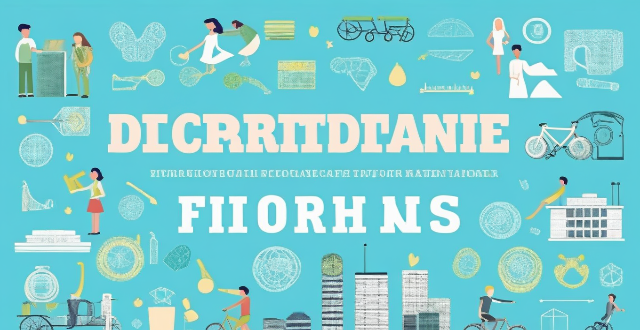
How do extracurricular sports activities contribute to overall student development ?
The text discusses the importance of extracurricular sports activities in student development. It highlights that these activities not only promote physical fitness but also contribute to various aspects of personal growth, including social skills, leadership abilities, and time management. The author explains how participating in sports can help students maintain good physical health, develop social skills through teamwork, foster leadership abilities, and learn effective time management skills. The text concludes that extracurricular sports activities are an essential component of overall student development as they offer numerous benefits beyond just physical fitness.

What is the significance of emotional intelligence in educational psychology ?
Emotional intelligence (EI) plays a pivotal role in educational psychology, impacting student success and well-being. Key aspects of EI include self-awareness, self-regulation, motivation, empathy, and social skills. For students, high EI correlates with better academic performance, social skill development, mental health, and resilience. For teachers, it enhances classroom management, instructional strategies, student relationships, and professional development. Schools benefit from a positive culture, effective intervention programs, and increased parental involvement when focusing on EI. Integrating EI into education fosters a generation equipped for academic, emotional, and social success.
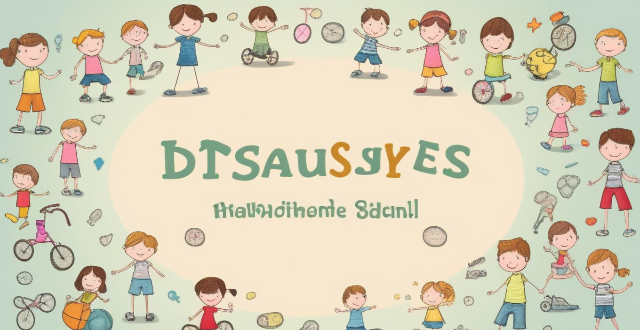
What role do sports play in character building for children ?
The article discusses the various ways in which sports contribute to the overall personality development of children. Sports ensure physical health and well-being, teach valuable life skills such as teamwork, leadership, communication, and goal setting, impact emotional development by boosting self-esteem, teaching resilience, and handling pressure, provide opportunities for socialization, and play a crucial role in moral development by instilling values such as integrity, respect, and responsibility. The author concludes that sports are not just about physical fitness but are powerful tools for character building in children.
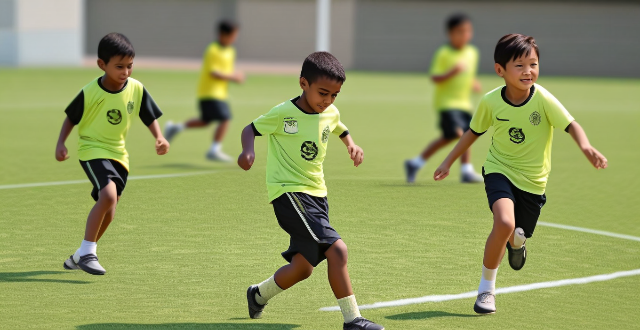
What are the benefits of team sports for child development ?
Team sports provide numerous benefits for child development, including improved physical fitness, coordination and motor skills, healthy lifestyle habits, social skills, self-esteem and confidence, discipline and responsibility, goal setting and achievement, stress relief, resilience, and empathy and compassion.

Are tennis training camps effective for children and teenagers ?
Tennis training camps can be an effective way for children and teenagers to improve their skills and develop a love for the sport, depending on factors such as quality of instruction, level of commitment, and overall environment. Benefits include skill development, learning new techniques, building confidence, and socializing with other young players.

How can governments support the development and implementation of sustainable energy solutions ?
Governments can support sustainable energy solutions through clear policies, financial incentives, R&D, education, infrastructure development, international cooperation, market-based mechanisms, and demonstration projects.